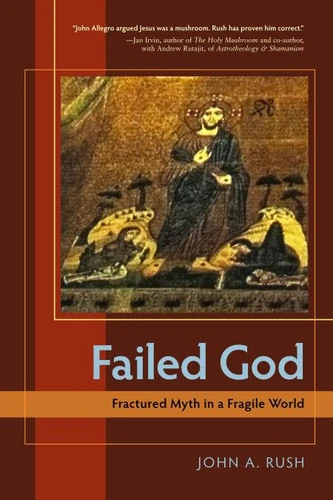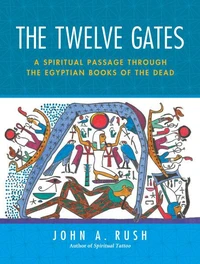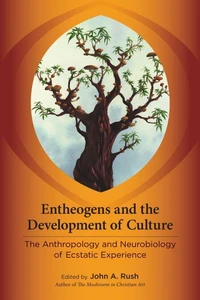Failed God. Fractured Myth in a Fragile World
Par :Formats :
Disponible dans votre compte client Decitre ou Furet du Nord dès validation de votre commande. Le format ePub protégé est :
- Compatible avec une lecture sur My Vivlio (smartphone, tablette, ordinateur)
- Compatible avec une lecture sur liseuses Vivlio
- Pour les liseuses autres que Vivlio, vous devez utiliser le logiciel Adobe Digital Edition. Non compatible avec la lecture sur les liseuses Kindle, Remarkable et Sony
- Non compatible avec un achat hors France métropolitaine
 , qui est-ce ?
, qui est-ce ?Notre partenaire de plateforme de lecture numérique où vous retrouverez l'ensemble de vos ebooks gratuitement
Pour en savoir plus sur nos ebooks, consultez notre aide en ligne ici
- Nombre de pages472
- FormatePub
- ISBN978-1-62317-458-3
- EAN9781623174583
- Date de parution16/04/2019
- Protection num.Adobe DRM
- Taille614 Ko
- Infos supplémentairesepub
- ÉditeurNorth Atlantic Books
Résumé
On a 2001 trip to the cathedrals of Europe, anthropologist John Rush and his wife entered St. Mark's Basilica in Venice and encountered a mosaic depicting Jesus surrounded by mushrooms with an Amanita muscaria cap in his hand. Examining the space with new eyes, they discovered images of mushrooms and mind-altering plants all over the Basilica. Intrigued, Dr. Rush spent seven years researching and reflecting on the profound effects hallucinogens had on the founding of all three major Western religions.
He concluded that Judaism, Christianity, and Islam are political constructions evolving out of the use of not only Amanita muscaria, but a plethora of mind-altering substances. Failed God: Fractured Myth in a Fragile World re-examines the scriptural stories of Judaism, Christianity, and Islam as told in the Bible and Qur'an and reveals them as "concocted mythical charters stemming from drug-induced romps with the super-natural." Rush shows how mind-altering substances played an instrumental role in the birth and development of Western religions and explains how they contributed to reports of "prophetic" experiences, including angry and disturbing messages from the divine.
With chapters on Judaism, Christianity, and Islam, Rush fully addresses the effects of mind-altering substances on each tradition, convincingly discrediting the idea that they stem from actual human interaction with the divine. He also shows how an intoxicated and over-zealous Apostle Paul corrupted Jesus's simple message of human decency, forming an oppressive religious system based on fear. In a thought-provoking conclusion, Rush asks how we can continue to attribute authority to traditions that were so clearly irrationally founded and incompatible with today's world.
He concluded that Judaism, Christianity, and Islam are political constructions evolving out of the use of not only Amanita muscaria, but a plethora of mind-altering substances. Failed God: Fractured Myth in a Fragile World re-examines the scriptural stories of Judaism, Christianity, and Islam as told in the Bible and Qur'an and reveals them as "concocted mythical charters stemming from drug-induced romps with the super-natural." Rush shows how mind-altering substances played an instrumental role in the birth and development of Western religions and explains how they contributed to reports of "prophetic" experiences, including angry and disturbing messages from the divine.
With chapters on Judaism, Christianity, and Islam, Rush fully addresses the effects of mind-altering substances on each tradition, convincingly discrediting the idea that they stem from actual human interaction with the divine. He also shows how an intoxicated and over-zealous Apostle Paul corrupted Jesus's simple message of human decency, forming an oppressive religious system based on fear. In a thought-provoking conclusion, Rush asks how we can continue to attribute authority to traditions that were so clearly irrationally founded and incompatible with today's world.
On a 2001 trip to the cathedrals of Europe, anthropologist John Rush and his wife entered St. Mark's Basilica in Venice and encountered a mosaic depicting Jesus surrounded by mushrooms with an Amanita muscaria cap in his hand. Examining the space with new eyes, they discovered images of mushrooms and mind-altering plants all over the Basilica. Intrigued, Dr. Rush spent seven years researching and reflecting on the profound effects hallucinogens had on the founding of all three major Western religions.
He concluded that Judaism, Christianity, and Islam are political constructions evolving out of the use of not only Amanita muscaria, but a plethora of mind-altering substances. Failed God: Fractured Myth in a Fragile World re-examines the scriptural stories of Judaism, Christianity, and Islam as told in the Bible and Qur'an and reveals them as "concocted mythical charters stemming from drug-induced romps with the super-natural." Rush shows how mind-altering substances played an instrumental role in the birth and development of Western religions and explains how they contributed to reports of "prophetic" experiences, including angry and disturbing messages from the divine.
With chapters on Judaism, Christianity, and Islam, Rush fully addresses the effects of mind-altering substances on each tradition, convincingly discrediting the idea that they stem from actual human interaction with the divine. He also shows how an intoxicated and over-zealous Apostle Paul corrupted Jesus's simple message of human decency, forming an oppressive religious system based on fear. In a thought-provoking conclusion, Rush asks how we can continue to attribute authority to traditions that were so clearly irrationally founded and incompatible with today's world.
He concluded that Judaism, Christianity, and Islam are political constructions evolving out of the use of not only Amanita muscaria, but a plethora of mind-altering substances. Failed God: Fractured Myth in a Fragile World re-examines the scriptural stories of Judaism, Christianity, and Islam as told in the Bible and Qur'an and reveals them as "concocted mythical charters stemming from drug-induced romps with the super-natural." Rush shows how mind-altering substances played an instrumental role in the birth and development of Western religions and explains how they contributed to reports of "prophetic" experiences, including angry and disturbing messages from the divine.
With chapters on Judaism, Christianity, and Islam, Rush fully addresses the effects of mind-altering substances on each tradition, convincingly discrediting the idea that they stem from actual human interaction with the divine. He also shows how an intoxicated and over-zealous Apostle Paul corrupted Jesus's simple message of human decency, forming an oppressive religious system based on fear. In a thought-provoking conclusion, Rush asks how we can continue to attribute authority to traditions that were so clearly irrationally founded and incompatible with today's world.





